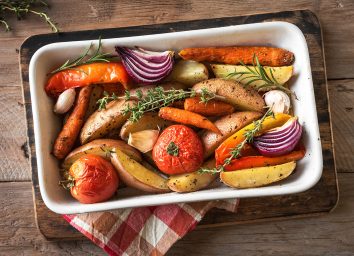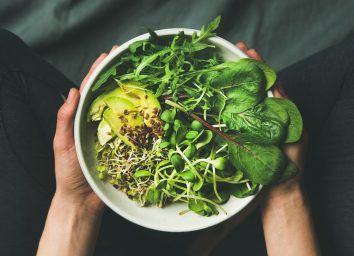5 Best Vegetables for Your Heart, Say Dietitians
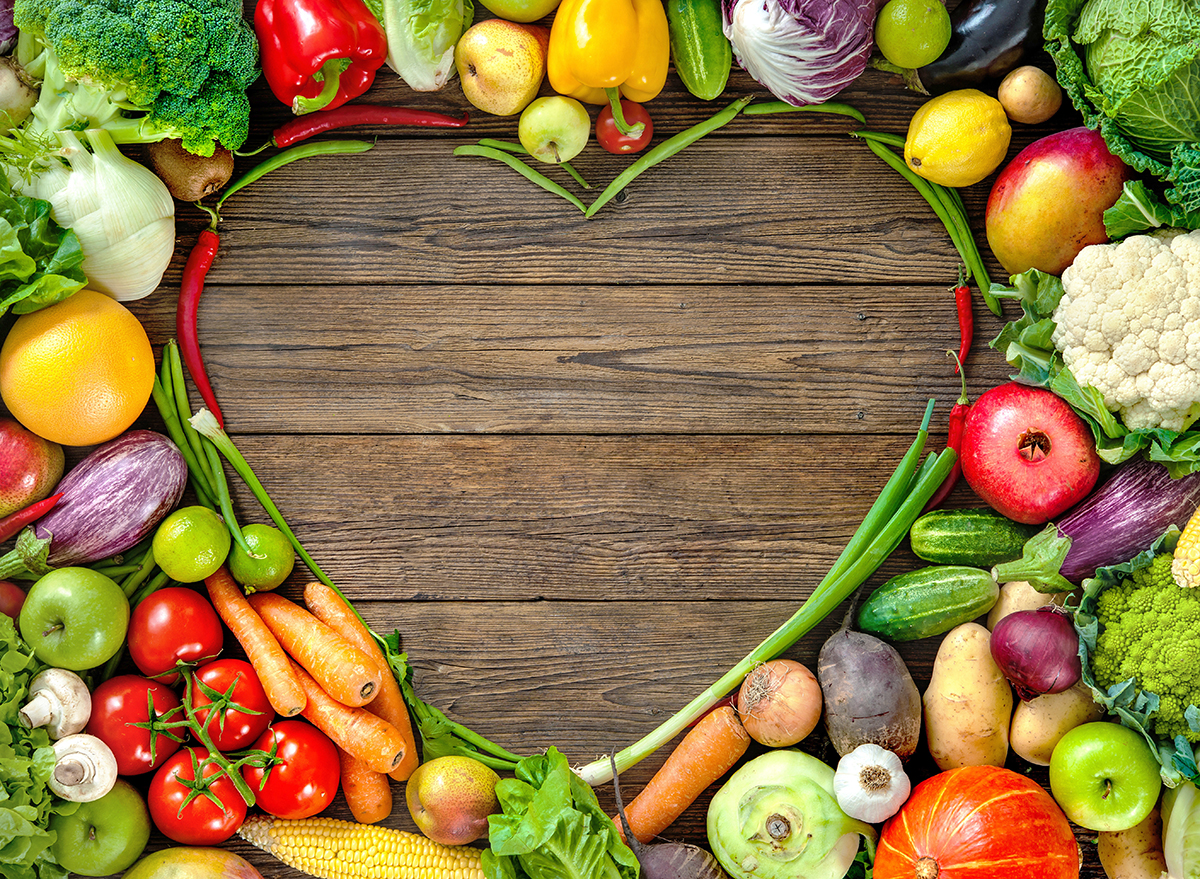
If you are at risk of or are currently suffering from heart disease, then you are dealing with the leading cause of death for adults in the United States. Poor heart health can stem from various things such as high blood pressure and cholesterol, diabetes, being overweight or obese, and an unhealthy diet. If you are currently dealing with any of these issues, then you may suffer from heart attacks and coronary heart disease in the future. However, there are ways to turn your heart health around, and one of those ways includes a healthy diet.
A healthy diet consists of eating lots of vegetables, which are powerful foods packed with nutrients. And making sure you get adequate amounts of vegetables in your diet is one way to improve your heart health. According to The Nutrition Twins, Lyssie Lakatos, RDN, CDN, CFT, and Tammy Lakatos Shames, RDN, CDN, CFT, registered dietitians on our medical expert board, all vegetables are superstars when it comes to heart health. They suggest that research consistently shows that the more vegetables you consume, the lower your risk for heart disease and stroke will be. However, they were able to pick the best five for your heart, so keep reading to see what they are. Then, take a look at 6 Best Vegetables To Reduce Inflammation, Say Dietitians.
Tomatoes
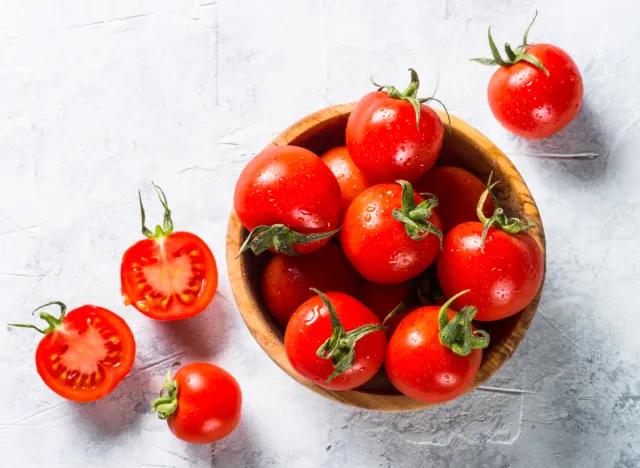
The Nutrition Twins suggest that tomatoes are nutrient powerhouses as well as rich sources of heart-protective antioxidants. These include lycopene, beta-carotene, folate, potassium, vitamin C, flavonoids, and vitamin E.
“Research shows that the nutrients in tomatoes reduce ‘bad’ LDL cholesterol, blood pressure, and homocysteine (a measure of inflammation and an independent risk factor for heart disease), and make the cells less ‘sticky,’ which keeps blood flowing more easily,” say The Nutrition Twins.
Furthermore, The Nutrition Twins state that many of the antioxidants in tomatoes, like lycopene and beta-carotene, become as much as four times more bioavailable when they’re cooked.
“So, although adding fresh tomatoes to salads, burritos, sandwiches, and wraps is great, don’t be afraid to add them to cooked meals like chili, stews, sauces, and cooked dishes or to eat them in tomato sauce, as well,” advise the Nutrition Twins.
Spinach
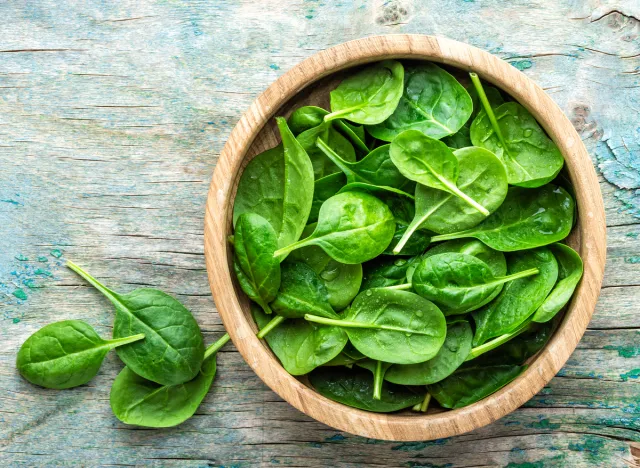
“Spinach hits it out of the ballpark when it comes to heart health,” say The Nutrition Twins. “High blood pressure puts the heart at risk, and spinach lowers blood pressure, thanks to its nitrates, which help make arteries less stiff and improve the function of the cells that line blood vessel walls.”
The Nutrition Twins say that this leafy green also promotes proper blood clotting. This is thanks to its hefty dose of vitamin K.
According to research published in the American Journal of Clinical Nutrition, eating leafy green vegetables, such as spinach, can significantly reduce your risk of heart disease.
To get more “good-for-your-heart green goodness,” The Nutrition Twins suggest trying these simple strategies:
- Toss spinach in omelets, casseroles, and soups
- Stack sandwiches with it
- Make salads with it or toss a few leaves into salads
- Add it into stir fries and in tomato sauce
Brussels sprouts
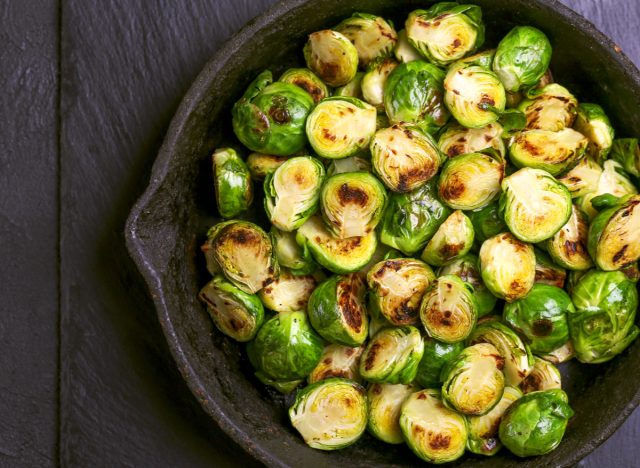
They may not be everyone’s favorite veggie, but they are powerful heart protectors.
Research published in the Journal of the American Heart Association shows that cruciferous veggies like Brussels sprouts may help to prevent clogged arteries, which the Nutrition Twins state is a large cause of heart attacks and strokes.
“Many of the heart-healthy benefits of Brussels sprouts are credited to their fiber, carotenoids, folate, fiber, and vitamin C, E, and K,” say The Nutrition Twins. “As well as their sulfur compounds, called glucosinolates, which have potent anti-inflammatory and antioxidant capabilities that help to protect cells against damage and that lower LDL cholesterol.”
Some suggestions for adding Brussels sprouts into your daily vegetable dosage include throwing them into salads and stir-frys, pasta, and rice dishes. You can also roast them in olive oil and garlic.
Asparagus
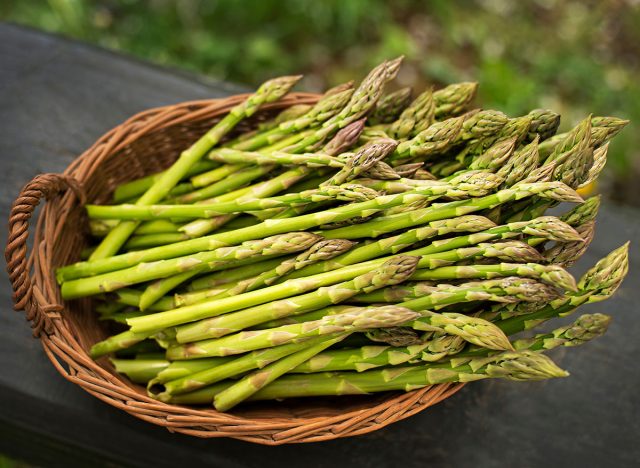
“Asparagus is a good source of folate, which lowers homocysteine, an amino acid that is linked to heart disease and stroke,” explain The Nutrition Twins.
Meanwhile, the asparagus’ potassium helps to lower high blood pressure, while its fiber content reduces LDL cholesterol and the risk for high blood pressure, and heart disease, according to research published in the Journal of Chiropractic Medicine.
“Plus, it contains flavonoids quercetin, isorhamnetin, and kaempferol, which also help to lower inflammation, as well as blood pressure, which damages the arteries and leads to heart disease,” says The Nutrition Twins.
If you want to add a couple of stalks into your dishes, try tossing chopped asparagus in frittatas, quiches, casseroles, and salads. You can also mix them in pasta dishes or soups. Or, you can try grilling or steaming them and adding a little drizzle of dressing.
Onions
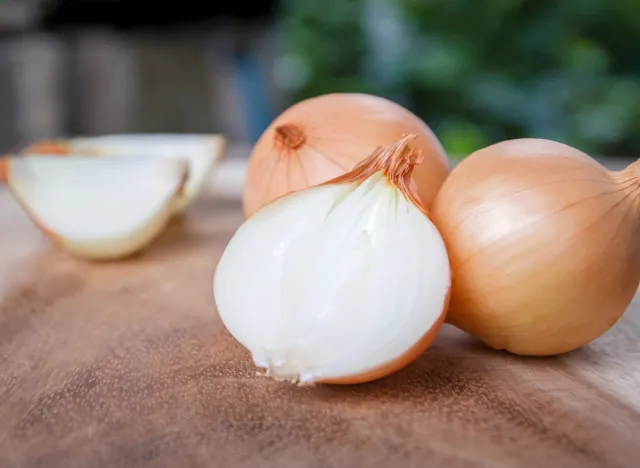
According to The Nutrition Twins, onions are a good source of sulfur-rich phytochemicals. These phytochemicals reduce cholesterol levels and break down blood clots. This may lower your risk for both heart disease and stroke.
“Onions’ powerful antioxidants, including quercetin, also fight against the chronic inflammation that is associated with all diseases, including heart disease, and they also decrease triglycerides and cholesterol,” say The Nutrition Twins. “Quercetin has also been found to significantly reduce blood pressure.”
Looking to incorporate more onions into your meals? Use onions for the base of a dish or soup. Or, add them to sandwiches, pizza, salad, casseroles, burgers, and tacos. You can even get creative and pickle them.

